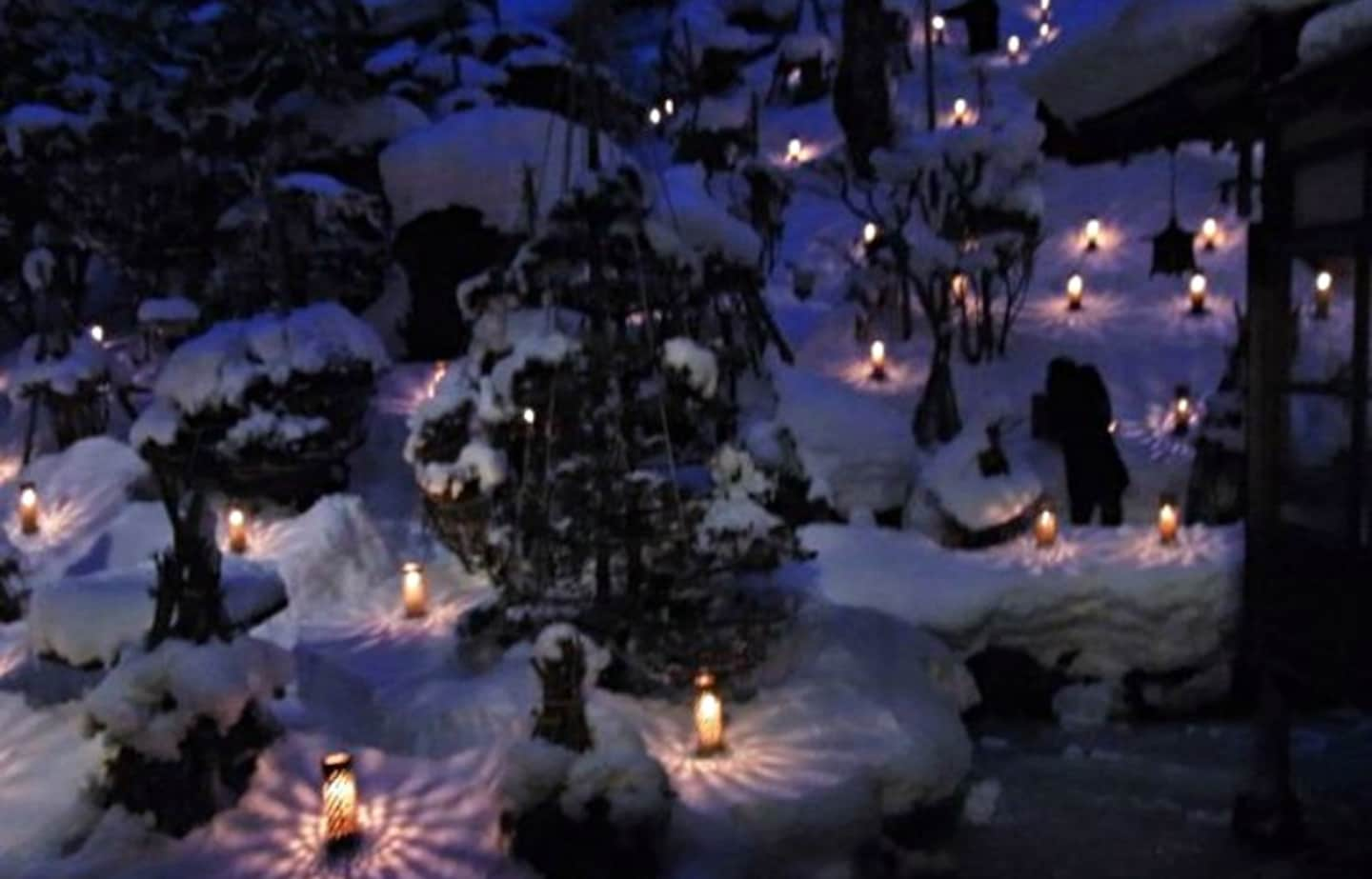Enjoy Winter to its Fullest at Mukaitaki Inn
Mukaitaki was a designated hot spring inn, or onsen ryokan, of the Aizu Han, the feudal domain that formed the western part of modern Fukushima Prefecture. During the winter, its biggest event is the Yukimi Candles ("Snow-Viewing Candles"), where 80 candles are lit every night in the snow-covered gardens of the inn.
By Trip101Architecture of Mukaitaki
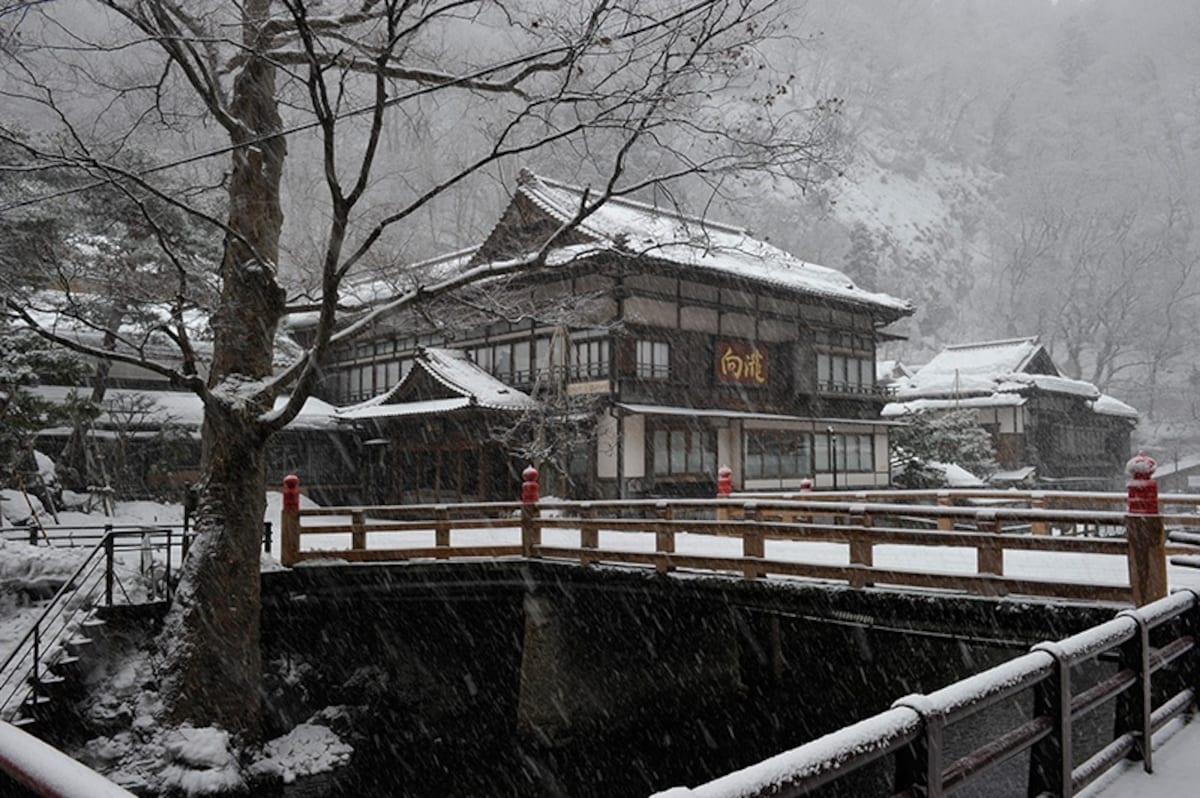
https://trip101.com/article/candles-in-the-snow-and-overflowing-hot-springs-the-historic-ryokan-mukaitaki
Located at Aizu Higashiyama Onsen in Fukushima Prefecture, historic Mukaitaki has been known as the Aizu Domain's designated place for rest and relaxation since the Meiji Era (1868-1912), known for maintaining its own exclusive natural spring, the Kitsune Bath. Its current wooden construction was put in place during the early Showa Period (1926-1989), and it is this construction, registered as one of Japan's Tangible Cultural Properties, that truly showcases this site's powerful preservation of history in the snow.
Although Mukaitaki has a history of housing important guests such as members of the imperial family and international summit attendees, with its 24 unique rooms of all different sizes, it's not too big and quite comfortable for guests. Due to its intricate design, it's unlikely for guests to run into each other outside of their rooms, and from the long Japanese-style corridor between the guest rooms and the hot springs you can view the Yukimi Candles in the courtyard in peace.
Yukimi Candles in the Courtyard
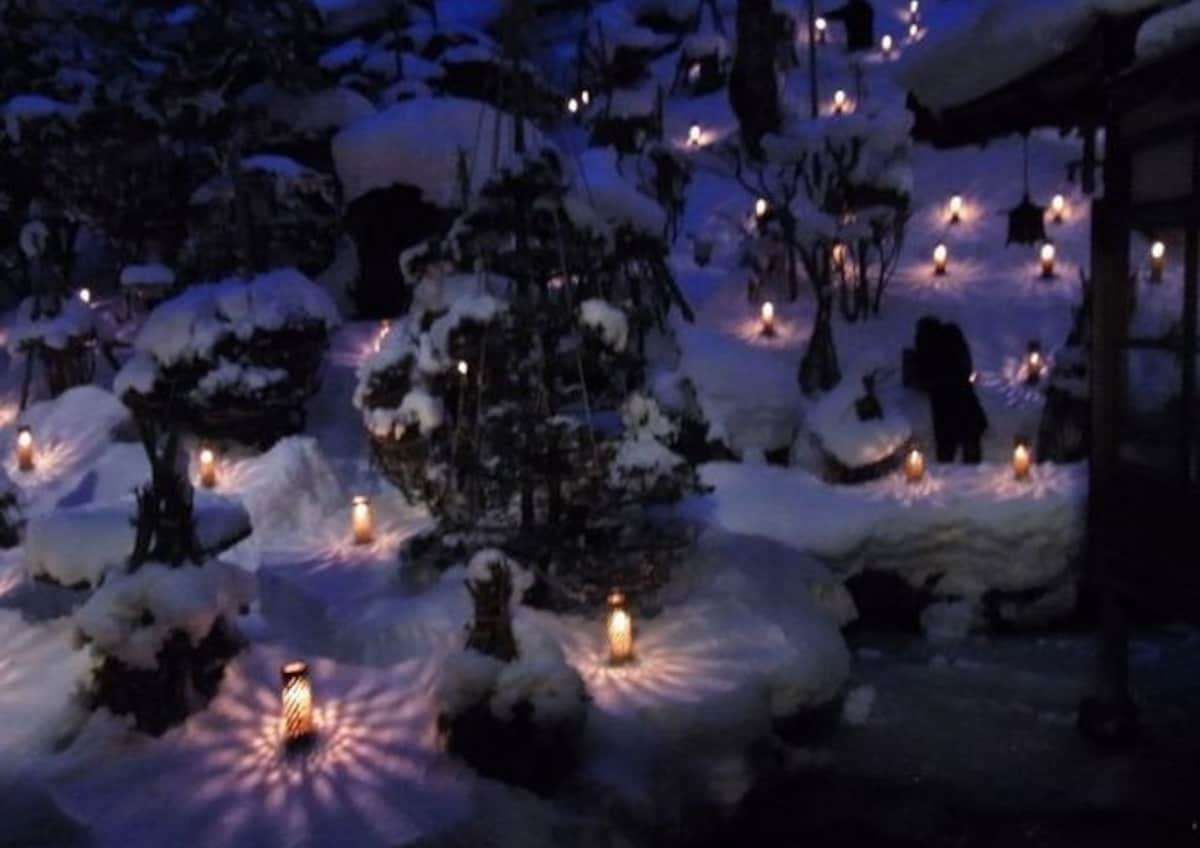
https://trip101.com/article/candles-in-the-snow-and-overflowing-hot-springs-the-historic-ryokan-mukaitaki
Throughout the year, you can see the beautiful scenery of the seasons at Mukaitaki, but the nightly Yukimi Candles in the winter courtyard are a fantastic snowy experience exclusive to this inn. Starting before sundown, the people of Mukaitaki spend hours arranging the snow in the courtyard and lighting the candles one by one. The soft glow from the candles that slowly fills the courtyard at nightfall delivers a feeling pure as white snow to anyone who sees it.
Approximately 80 candles are placed on the inclined courtyard from top to bottom, creating a beautiful sight when viewed under the moon from the guestroom windows, while those in the corridors can savor the glow reflected on the white snow. Depending on the angle, you can get two separate views of the candles, each with a completely different feel.
The Yukimi Candles are lit from late December until early March each year. Weather permitting, they will be lit every night for a few hours after sundown.
Naturally Flowing Hot Springs
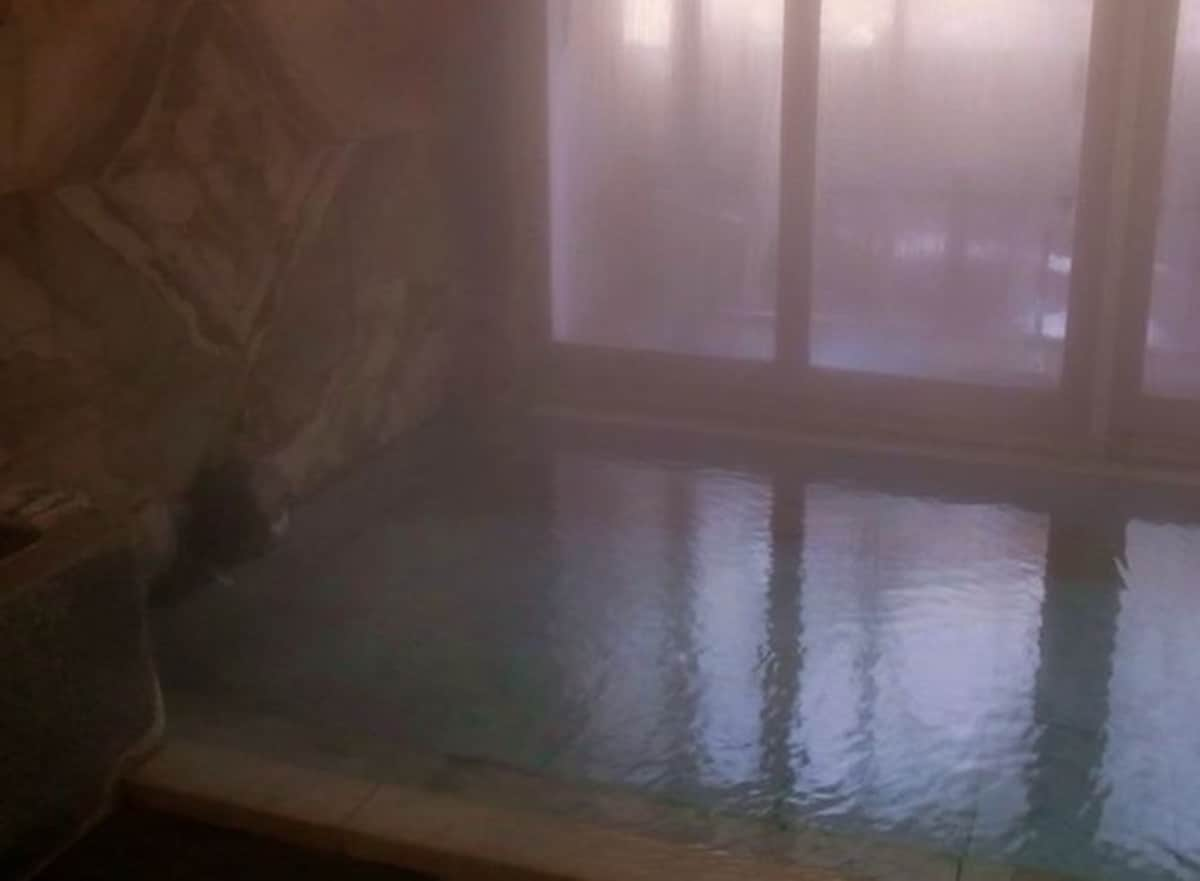
https://trip101.com/article/candles-in-the-snow-and-overflowing-hot-springs-the-historic-ryokan-mukaitaki
Originally used as an escape for the upper-class samurai of the Aizu Han, the hot spring at Mukaitaki was inherited from the feudal domain, and still overflows with its naturally soothing hot water, carefully maintained to this day.
The sheer number of baths is also impressive.
The hot Kitsune-Yu springs naturally from the ground and fills the bath without the help of any machinery, while
the more temperate Saru-no-Yu has large windows that let in the outside air, giving it the feel of an outdoor bath.
There are also three private baths available to rent, allowing you to have a nice relaxing soak on your own.
None of these baths requires any advance reservation, and they are available 24 hours a day. The fresh, clear, colorless, 100 percent natural bathwater is smooth enough to stick to your skin, providing you with lasting warmth.
Winter Aizu Cuisine
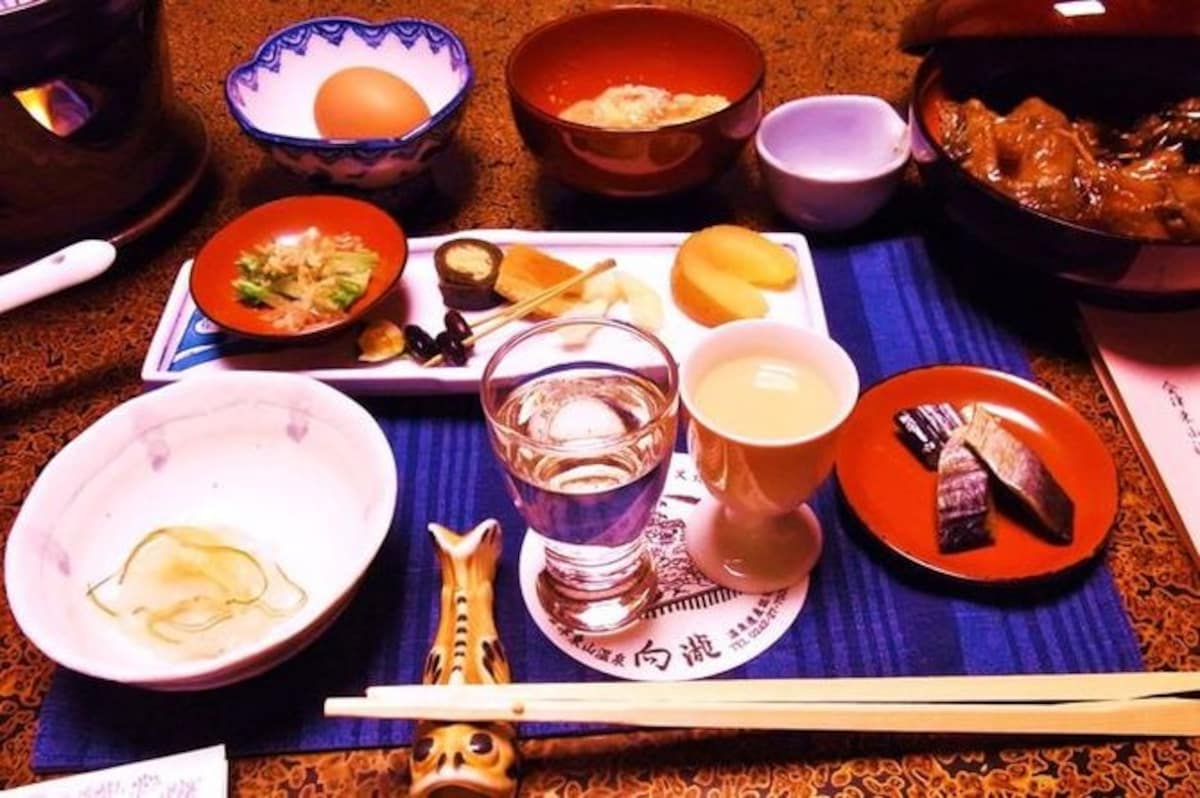
https://trip101.com/article/candles-in-the-snow-and-overflowing-hot-springs-the-historic-ryokan-mukaitaki
Throughout the four seasons, the locally produced food offers a gentle flavor without chemical flavorings.
The inn's winter menu starts with the Mukaitaki-exclusive Bishukako sake (above), herring pickled in sansho pepper (a famous preservative food of the Aizu winter), and kozuyu, a clam soup made with vegetables such as carrots and maidenhair, often found at celebratory meals in Aizu. The local cuisine will make you feel the warmth of this snowy land.
Hideyo Noguchi, the famed Japanese bacteriologist who once stayed here, was so moved by the taste of the pure rice Bishukako sake that the label includes his handwriting and signature to this day. This delicious sake is especially exquisite combined with Aizu’s own sweet simmered carp, which has been around since the Edo Period (1603-1868). In the mountainous Aizu region, carp were regarded as a valuable source of protein, and are said to have been a feast for the feudal lords, with Mukaitaki particularly known for this traditional dish. It comes in a big bowl, but if you can’t finish it all, the staff will vacuum pack it for you to bring home—so don’t hesitate to ask for a doggie bag!
Related Stories:
Omaru Onsen Inn: Rural Beauty Around an Open-Air Bath
Takao Onsen's Beautifying Muddy Hot Springs
Explore The Charms Of The Ship Museum In Yokohama


